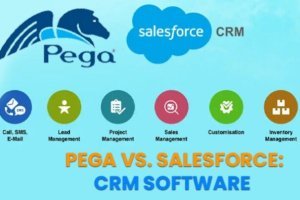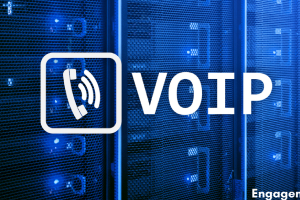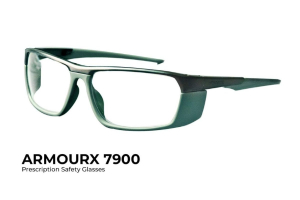
When it comes to where each company began their customer relationship management (CRM) journeys, Salesforce and Pegasystems couldn’t be more different. From a basic SaaS program that monitored sales leads to a suite of cloud apps that claim to provide exceptional customer experiences, Salesforce is presently changing.
Likewise, Pegasystems have developed an integrated collection of sales and marketing apps since the firm originally garnered notoriety as a supplier of business process management (BPM).
In this article, we will see what is Pega software and salesforce software, and their comparison is:
What is Salesforce software?
Salesforce acquired MuleSoft in 2018 as part of a multi-pronged strategy for delivering an integrated application experience. As part of its ongoing expansion, Salesforce has acquired many marketing tools that will eventually share a data object format with its flagship customer relationship management software.
What is Pega software?
There is no question that Salesforce is the more user-friendly and feature-rich of the two CRM programs. Still, the data model in Pega approach that sees CRM apps as the front-end application through which business processes that span the whole corporation are connected has a lot of appeal. As a result, Salesforce seems to be playing catchup in offering an integrated application experience that covers the whole customer experience management cycle.
Cost
Customers have come to expect that Salesforce would not compromise on price. However, “customer support apps” that operate on a single-tenant cloud platform managed by Pegasystems are described on the company’s website as charging anywhere from $97 to $295 per user each month for an “omni-channel experience.” On the other hand, Third-party suppliers advertise PegaCRM at $200 per user every month on their websites.
As a result, on-premises deployments of Pega CRM are expected to incur significantly more expenditures. Enterprise software is notorious for having a wide range in price depending on the number of modules, the number of users each month, and how hard a client is willing to negotiate. But Pega PRPC and CRM have a far higher starting price than Salesforce CRM, ten or more.
Over several years, Salesforce has worked to improve the overall user experience. Using a desktop computer or a mobile phone, you may quickly use the Salesforce CRM program.
The Pegasystems CRM is more focused on case management than other CRMs. It’s like opening a case file for every consumer interaction. The data model in Pega receives data in near-real-time from many other systems that may be important to that particular client encounter.
To eliminate the need for salespeople to declare they’ll come back to a client with an answer to a query left unanswered in an application, this solution is being developed. In recent updates, Salesforce has been progressively expanding its core platform’s workflow features, while Pegasystems’ approach tends to be more customer-centric.
Also Read: Pega CSA Certification
Implementation
As a pioneer of SaaS products, Salesforce has stayed steadfast in its commitment to cloud computing. However, storing data in the cloud is still a non-starter for certain firms.
A single-tenant cloud computing infrastructure hosted by Pegasystems may be used to install Pegasystems CRM on-premises, in the public cloud, or through Pega Cloud.
When using Salesforce to handle a sales process, there is a huge difference between activating a software license and using Salesforce. As a result, employing a Salesforce professional or using a third-party service provider is common for this job.
Customizing Salesforce’s CRM application is a breeze thanks to various low-code Lightning application development tools that end-users can use with little understanding of programming. In addition, Salesforce has just begun to open source parts of its low-code platform.
To allow enterprises to personalize any Pega application, Pegasystems has developed visual tools. As a result, it’s easier to use than Salesforce products, which need a “super user” at the very least. Organizations will find it simpler to configure Pega CRM after they have it up and running, as a result of this.
Integrations
Salesforce offers a wide range of tools and well-defined application programming interfaces (APIs) to facilitate integration. In addition, Salesforce acquired MuleSoft, a company that provides software and services for integrating applications. Other PaaS environments are accessible via Salesforce.com. At a higher level of abstraction, Pegasystems focuses on BPM integration. However, the Pega BPM platform is required for this degree of connectivity to be achieved.
Support for Clients
Support for customers may be accessed via Pegasystems and Salesforce alike. In addition, sales administrators and developers may exchange knowledge and best practices via the Salesforce community, which has grown enormously due to the company’s vast end-user base.
Add-ons & Extras
Salesforce’s CRM application now has extra capabilities. When it comes to the app store, Salesforce has the upper hand because of the breadth and depth of add-ons and modules it makes accessible, including marketing automation solutions produced by Salesforce and its third-party partners.
Using a similar object model, all of Salesforce’s add-on software and third-party partner software may access a single common customer record. On the other hand, third-party suppliers may have wholly distinct user interfaces. Thus the amount of integration might be inconsistent. Salesforce is already expanding that paradigm to apps it has bought.
Pegasystems’ apps, including CRM, marketing, and customer support, are built on a single code base, which assures a more consistent user experience across a wide range of applications.
In addition, Pegasystems has developed industry-specific implementations of its application suites.







